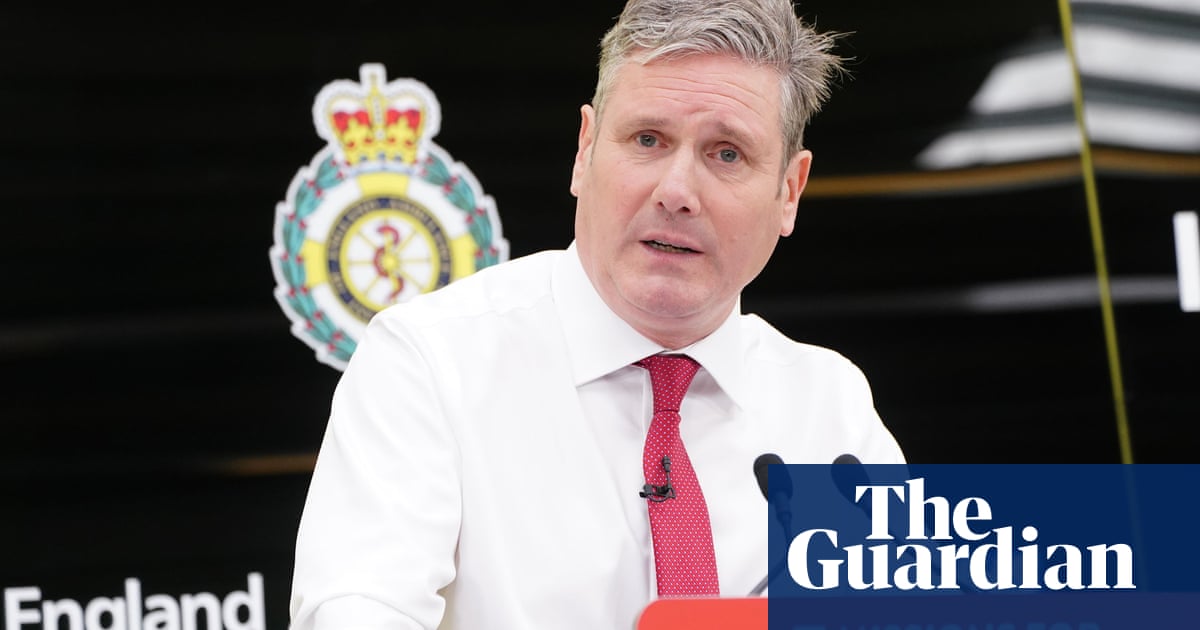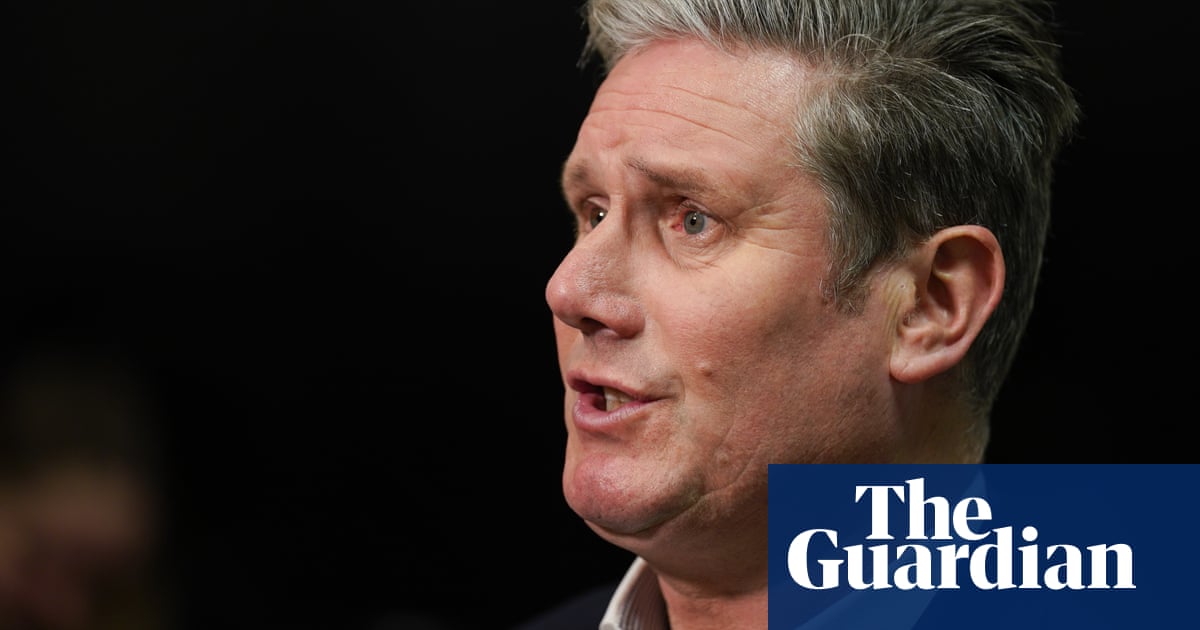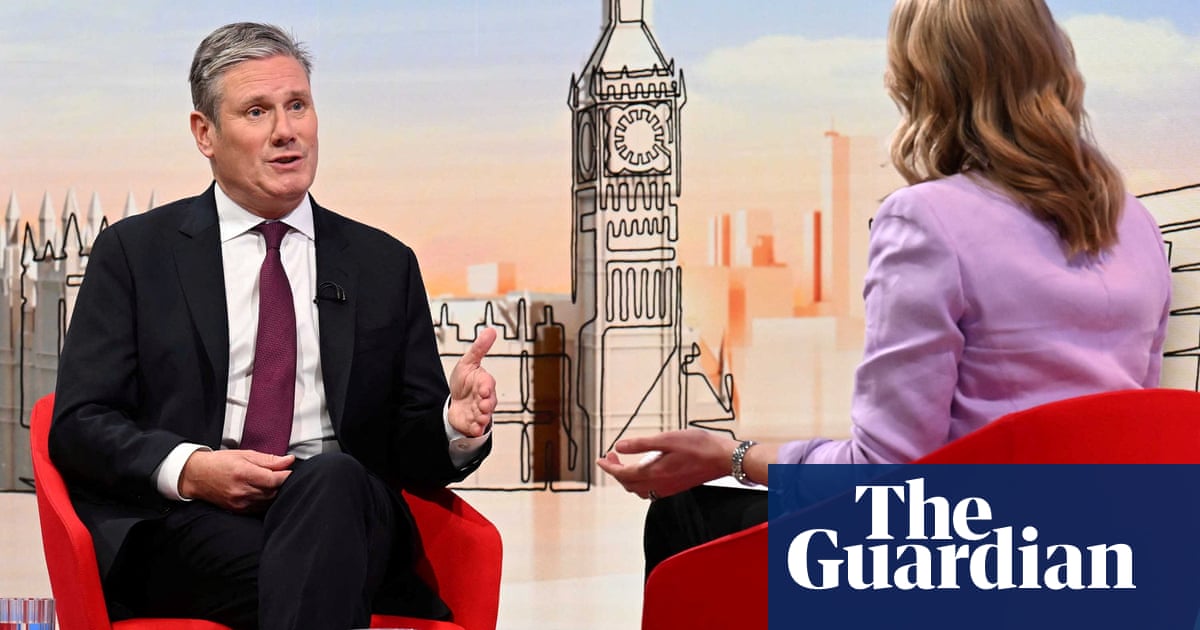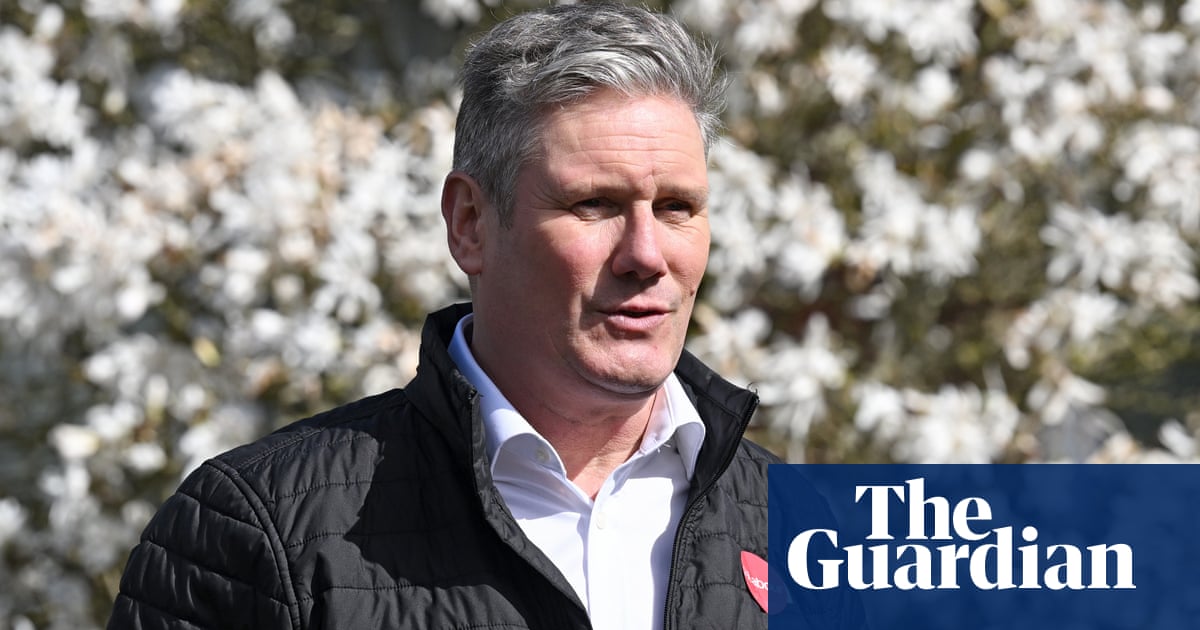
A Labour government would rip up the planning rules restricting the expansion of onshore windfarms as part of a plan to make the UK a clean energy superpower, the Guardian has learned.
Keir Starmer admitted that he would have to “persuade some communities to get on board” after Rishi Sunak reinstated a ban, dropped by Liz Truss, on new onshore projects amid fears of local objections.
The Labour leader has already pledged to double the amount of onshore wind, one of the cheapest and quickest sources of renewable energy, and quadruple offshore wind by 2030, creating more than 100,000 jobs in the sector and wider supply chain.
Windfarms, in effect banned by David Cameron in 2015, have been controversial in some of the communities where they are located.
However, during a visit to a windfarm in Lincolnshire on Thursday, Starmer pledged to tackle nimbyism over the issue, saying that his government “will not shy from taking head on the choice that has to be made” by easing planning restrictions for onshore wind turbines.
After meeting with industry leaders, workers and apprentices, Starmer argued that the economic potential of onshore and offshore wind was too great and “must not be sacrificed on the altar of the Conservative party’s electoral woes”.
In contrast, he said, Labour would lift the planning ban on onshore wind “because politics is about choices”. He added: “If that choice means some communities adapting to a new landscape, so we can create tens of thousands of good quality skilled jobs, I will not hesitate to make it.”
The proposed planning changes for onshore wind include removing the loophole that allows a single person’s objection to stop an application, bringing planning requirements in line with other infrastructure.
There would also be tough new targets to get planning decisions on renewables down from years to just months and a crackdown on Whitehall blocking developments, as well as a requirement to proactively identify land for renewable energy developments.
Labour claims that their planned investment in wind power, from both the private sector and their new state-owned Great British Energy company, would deliver £93bn of savings to taxpayers in cheaper energy bills, of which almost £16bn would be from onshore wind.
Truss and her chancellor, Kwasi Kwarteng, had promised to change planning rules so that the giant turbines could be deployed more easily in the countryside. But like much of their doomed plan for growth, which also included lifting the fracking ban, it was dropped by her successors.
Cabinet Office minister Oliver Dowden has confirmed that rules that require local consent on planning would stay in place as it was important to strike the right balance between “recognising local feeling” and investing in renewable energy offshore.
It comes after Sunak’s extraordinary volte-face on attending the Cop27 climate summit in Egypt, saying he would attend in order to “galvanise” world leaders to save the planet.
The prime minister also adopted precisely the same language on renewable energy that Starmer has been using for months, declaring that he now wanted to turn the UK into a “clean energy superpower”.












